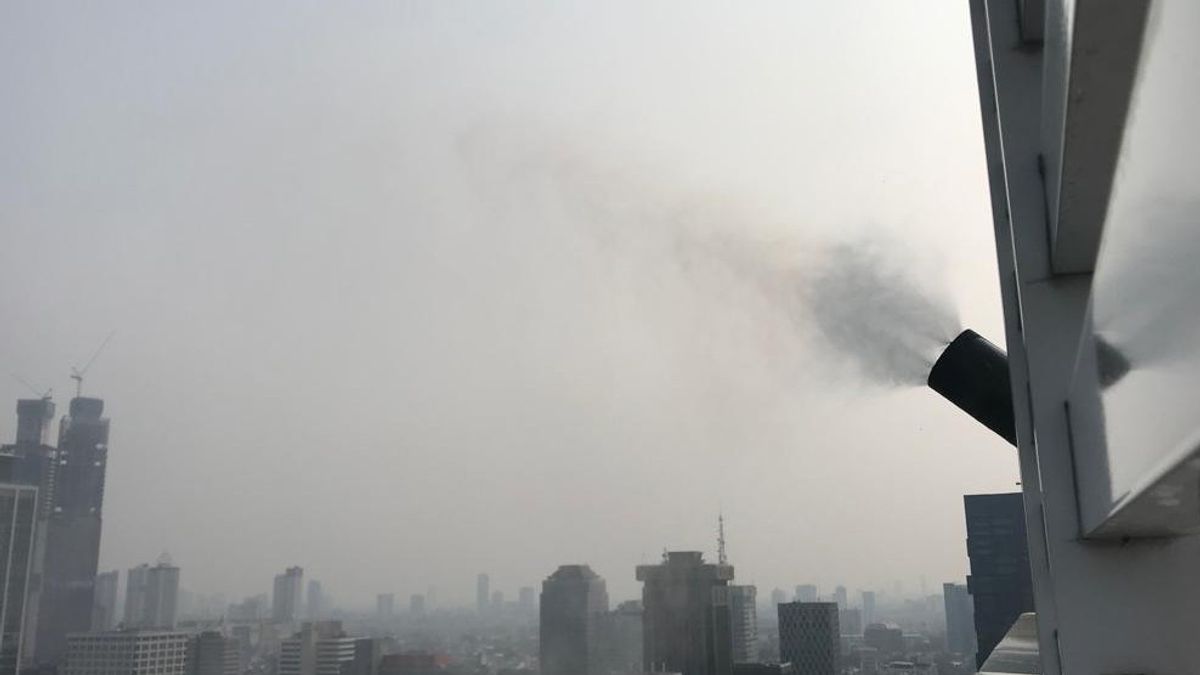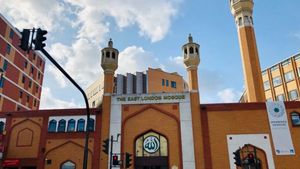JAKARTA - The DKI Jakarta Provincial Government operates a water mist generator as an executor of air pollution. This tool is placed on the roof of a 22-story building in Block H of DKI Jakarta City Hall.
When the water mist generator is operated, there is a water burst with quite fine grains. This water spreads to the air in the DKI Jakarta City Hall area, which looks foggy from the point of view.
The water mist device placed on the edge of the building is equipped with a nozzle to create a smooth water grain effect, a water pump to be able to pass through the nozzle with high pressure, driving fans, and water reservoir reservoirs.
When operating, the pollution binding machine to fill the ground surface emits quite a noisy sound. The grains of water carried by the wind were also felt when they were around the device.
Head of the Environmental Pollution and Damage Control Division of the DKI Jakarta Environmental Agency, Erni Pelita Fitratunnisa, said that this tool is usually operated for 8 hours per day.
"This operates twice four hours per day with a time of 30 minutes to one hour," Erni said when met at the location, Friday, September 1.
It is recommended that water masses be installed on buildings with a height of 20 meters to 200 meters to produce air pollution at a radius of about 30 to 75 meters.
The mouthgap angle on the water mist needs to be directed at an angle of 45 degrees so that spraying can be more effective. The water source exhaled by water mist is taken from inside the building.
"The water needed is 5 to 10 liters per minute. If 1 hour reaches 300 liters. So, (the water spent) is also not too much," said Erni.
اقرأ أيضا:
In the future, the DKI Provincial Government will bring in 30 water mists which will be placed in various tall buildings belonging to the DKI Jakarta Provincial Government. This tool was created by the National Research and Innovation Agency (BRIN).
If the water mist has been mass produced, the DKI Provincial Government will also require hundreds of private building managers to participate in buying the equipment sold at a price of Rp. 50 million to Rp. 60 million.
Thus, Erni hopes that air pollution can be controlled more optimally until the rainy season arrives.
"The target is how we can reduce the level of air pollution. So, if the water mist is effective, we will continue to do it until the rainy season. The rainy season is expected to reduce the level of pollutants that occur in Jakarta," he added.
The English, Chinese, Japanese, Arabic, and French versions are automatically generated by the AI. So there may still be inaccuracies in translating, please always see Indonesian as our main language. (system supported by DigitalSiber.id)


















